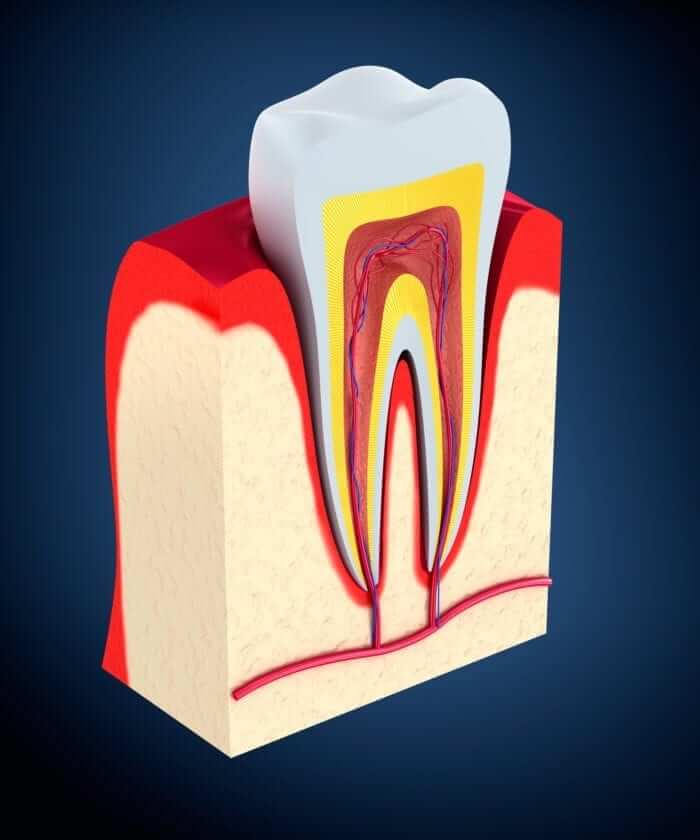
Noticing blood on your toothbrush or floss can be alarming, but bleeding gums are more common than you might think. While it can occasionally be the result of brushing too hard, frequent or ongoing bleeding may be a sign of underlying dental problems that require attention. The good news? With proper care and preventive steps, you can treat and even prevent bleeding gums before they lead to more serious issues.
Reasons for Bleeding Gums
Bleeding gums can occur for a number of reasons — some harmless, others more concerning. Common causes include:
Poor oral hygiene: Plaque buildup along the gumline is one of the most frequent reasons gums begin to bleed.
Brushing or flossing too aggressively: Using a hard-bristled toothbrush or applying too much pressure can irritate your gums.
Gum disease: Conditions like gingivitis and periodontitis can cause gums to become inflamed, sensitive, and prone to bleeding.
Vitamin deficiencies: Lack of vitamin C or K can affect gum health.
Hormonal changes: Pregnancy or menopause can make gums more sensitive and likely to bleed.
Medication side effects: Blood thinners and other medications may increase bleeding risk.
Identifying the root cause is the first step toward treating the problem effectively.
How Do I Stop Bleeding Gums?
Here are some immediate and long-term strategies to treat bleeding gums:
Improve your brushing technique: Use a soft-bristled toothbrush and gentle, circular motions. Avoid scrubbing harshly.
Floss daily — and gently: Don’t skip flossing, but be sure to do it with care. Bleeding can actually increase at first, but it usually subsides within a week of consistent flossing.
Rinse with salt water or antiseptic mouthwash: This can help reduce inflammation and fight bacteria.
Apply a cold compress: If your gums are swollen or tender, an ice pack can reduce inflammation.
Quit smoking: Tobacco use contributes to gum disease and delays healing.
Maintain a healthy diet: Eat foods rich in vitamins C and K to support gum health.
Schedule regular dental cleanings: A professional cleaning removes plaque and tartar that at-home brushing can’t.
If bleeding persists for more than a week or worsens, it’s important to seek help from a dental professional.
Dental Conditions That Can Cause Bleeding Gums
Sometimes, bleeding gums are a symptom of more serious dental issues:
Gingivitis: This is the earliest stage of gum disease, caused by plaque buildup. It often leads to red, swollen gums that bleed easily.
Periodontitis: If left untreated, gingivitis can progress to periodontitis — a more advanced form of gum disease that can result in tooth loss and bone damage.
Poor-fitting dental appliances: Ill-fitting dentures or braces can irritate the gums and cause bleeding.
Infections or abscesses: Bacterial infections in the gums can also cause bleeding, often accompanied by swelling or pus.
The Takeaway
Bleeding gums aren’t something to ignore. While occasional bleeding may be harmless, persistent symptoms can indicate a larger issue that needs attention. With good oral hygiene, regular dental visits, and awareness of your overall health, you can prevent gum problems before they begin — and treat them effectively if they do.
Get Expert Gum Care at Modern Bite Dentistry in Frisco
If you’re experiencing bleeding gums or other signs of gum irritation, the skilled team at Modern Bite Dentistry in Frisco, TX is here to help. With advanced diagnostic tools, personalized care plans, and a gentle approach, they provide comprehensive treatment for gum health and overall dental wellness. Don’t wait for small issues to become major problems — contact Modern Bite Dentistry today and take the first step toward a healthier smile.

